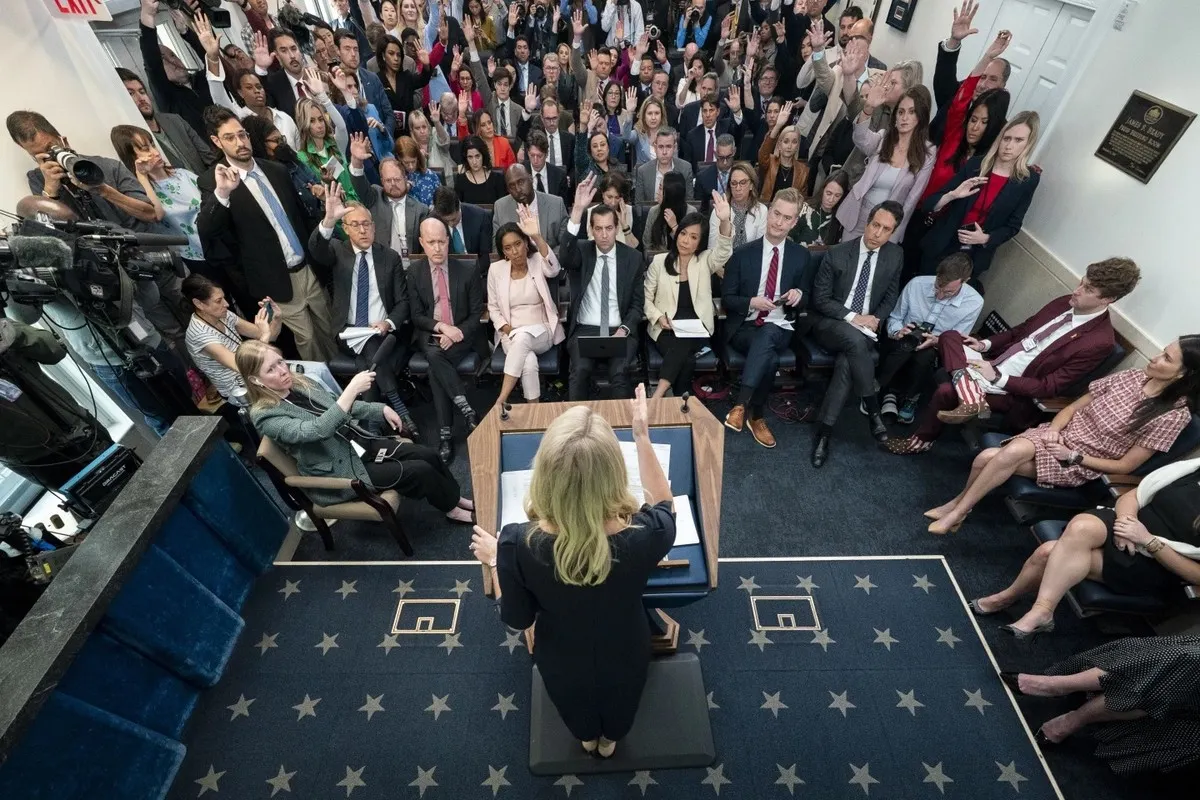16/04/2025
16/04/2025

White House press secretary Karoline Leavitt speaks with reporters in the James Brady Press Briefing Room at the White House on April 15 in Washington. (AP)
WASHINGTON, April 16, (AP): Fresh from a courtroom loss over The Associated Press' access to the presidency, the White House on Tuesday put forward a new media policy that sharply curtails access to Donald Trump by news agencies that serve media outlets around the world. It was the latest attempt by the new administration to control coverage of its activities.
The move would block the AP and other wire services that serve billions of readers through thousands of news outlets. It comes after a judge ruled the White House had violated the organization’s free speech by banning it because it disagreed with the outlet’s decision not to rename the Gulf of Mexico.
While outlining a new "pool coverage” policy for small spaces like the Oval Office and Air Force One, the White House also said it will ultimately give press secretary Karoline Leavitt the final say over who gets to question her boss, according to people who have seen the plan.
The White House did not return messages for comment on Tuesday evening.
A federal judge last week ruled the White House improperly punished the AP for refusing to rename the Gulf of Mexico by blocking its reporters and photographers from covering the events. U.S. District Judge Trevor N. McFadden ordered the administration to treat the AP as it does other news organizations.
A day after defying McFadden's ruling and continuing AP's ban when Trump and El Salvador President Nayib Bukele met with reporters in the Oval Office, the White House leaked a new policy to selected journalists.
For many years, the White House Correspondents Association has run the pool for the limited space events, and each time it has included reporters from the wire services AP, Reuters and Bloomberg. One print reporter was also allowed, selected on a rotating basis from more than 30 news outlets.
The White House now says it will lump the three wire services with print reporters for two slots - meaning roughly three dozen reporters will rotate for two regular slots. Wire services typically report and write stories that are used in multiple locations around the country and the planet.
Even with the rotation, the White House said Trump's press secretary "shall retain day-to-day discretion to determine composition of the pool.” The new policy says reporters will also be allowed in "irrespective of the substantive viewpoint expressed by an outlet.”


